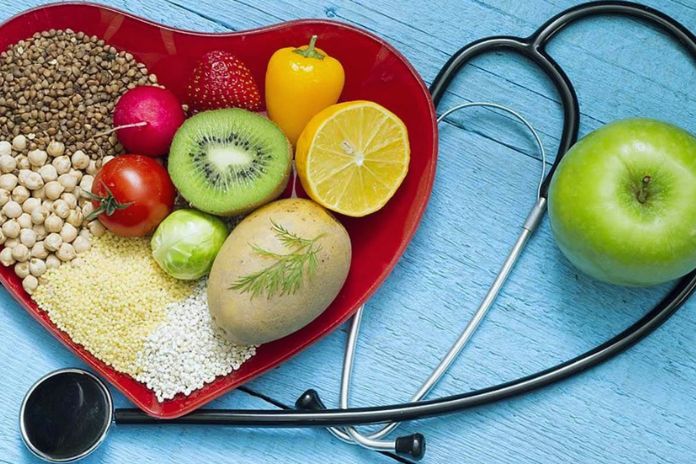What Is Cholesterol?
Cholesterol is increasingly identified as an enemy of health; in reality, it is a molecule that the body produces normally and is introduced only minimally with the diet. The cholesterol produced by our body performs important physiological functions, such as:
- It is a component of the cell wall and, in particular of that of the nervous system;
- It contributes to the digestion of fats thanks to the formation of bile;
- Participates in the synthesis of Vitamin D, which is important for bone health;
- It contributes to the synthesis of steroid hormones (testosterone, estradiol, aldosterone, etc…);
Cholesterol, being a “fat” molecule, is transported in the blood thanks to lipoproteins which, in turn, differ in:
- Low-Density Protein – LDL; commonly identified as “bad cholesterol,” LDL lipoprotein is deposited in the arteries making them increasingly narrow and less elastic. This condition can cause the onset of cardiovascular diseases such as heart attack and stroke.
- High-Density Protein – HDL, also known as “good cholesterol,” HDL lipoprotein performs an important function of “disposal” of unused fat circulating in the blood to reduce its accumulation on the walls of blood vessels, helping the correct functioning of arteries and heart. The high-density proteins transport the fats collected in the blood to the liver, where they are processed and disposed of via the bile.
How To Lower Blood Cholesterol?
It should be remembered that cholesterol only begins to pose a risk to health if its concentration levels in the blood exceed 200 mg/dl. In this case, we speak of hypercholesterolemia. Before resorting to actual drug therapy, it is necessary to identify, with your doctor, the causes of high cholesterol and make changes in your lifestyle, such as:
Reduce Body Fat
Reduce body fat, or eliminate excess pounds and waistline, always under the careful supervision of a professional. Surely controlling the daily intake of calories and aiming to reduce them in a targeted way is another good strategy. We try to reduce the caloric intake from carbohydrates and introduce a greater quantity of foods rich in fiber into the diet. Another important step is to engage in aerobic physical activity every day, at moderate intensity, to promote the consumption of accumulated fat.
Practice Physical Activity
Performing daily physical activity is generally of great benefit to our bodies. Physical exercise lowers the value of blood sugar and lipids, consequently decreasing blood pressure and the onset of cardiovascular pathologies. Even taking a 30-minute walk has its benefits. Still, if you aim for greater results in shorter periods, we recommend practicing more intense sports, favoring aerobic sports such as swimming, dancing, aerobics, brisk walking, etc…
Quit Smoking
Smoking is a great enemy of health and is the cause of a lot of damage to vital organs such as lungs and arteries. Smoking lowers good cholesterol levels and injuries to the arteries themselves.
Correct Power Supply
One of the best ways to combat cholesterol through diet is to be able to increase the amount of good cholesterol that we introduce into the body and, in the meantime, decrease the bad cholesterol instead. This is possible if you prefer foods containing unsaturated fats or fibers to saturated ones (often of animal origin). Below we list some precautions to be taken to have an effective diet:
- Eat plenty of vegetables, cereals, fruit, and legumes: these foods contribute, thanks to their supply of fibers and plant sterols and, in the case of fruit, also vitamins and antioxidants, to reduce global cardiovascular risk. Threads also found in pasta and whole meal bread are particularly beneficial as they reduce the intestinal absorption of lipids. We recommend eating raw vegetables and legumes in salads (the second point will explore the condiments to use) to make the most of their properties and not lose nutrients during cooking.
- Choosing the right dressing: avoid butter, lard, and all those dressings containing fats of animal origin (saturated fatty acids) and instead use vegetable oils such as extra virgin olive oil. The preferred cooking methods are steaming, baking, or boiling. Fried foods are among the main culprits in increasing cholesterol and should be avoided as much as possible.
- Pay attention to food in general: dairy products, sausages, and eggs naturally contain large quantities of lipids. It is good to eat them in moderation and, in the case of dairy products, prefer yogurt, milk and low-fat, and low-fat and cheeses. The number of sweets you eat should also be monitored and decreased.
- Eat oily fish: fish is also our ally in the fight against cholesterol thanks to its high omega-3 content. It must be cooked in the healthiest way possible, remembering the tricks on the seasoning and avoiding frying. It is fair to point out that crustaceans and mollusks do not share the same properties as oily fish. Consequently, their intake should be limited.
- Prefer white meat: the diet can also include meat as long as it is lean, giving preference to white meat. We remind you that poultry must be strictly eaten without the skin.
Use Specific Supplements
Having heard the opinion of your doctor, resort to the use of supplements based on fermented red rice; Red rice is obtained by fermenting rice with Monascus purpureus yeast. During this process, the rice is enriched with Monacolin K, which is the substance that helps to maintain normal cholesterol levels.
Also Read: Foods For Calmness And Well-Being

